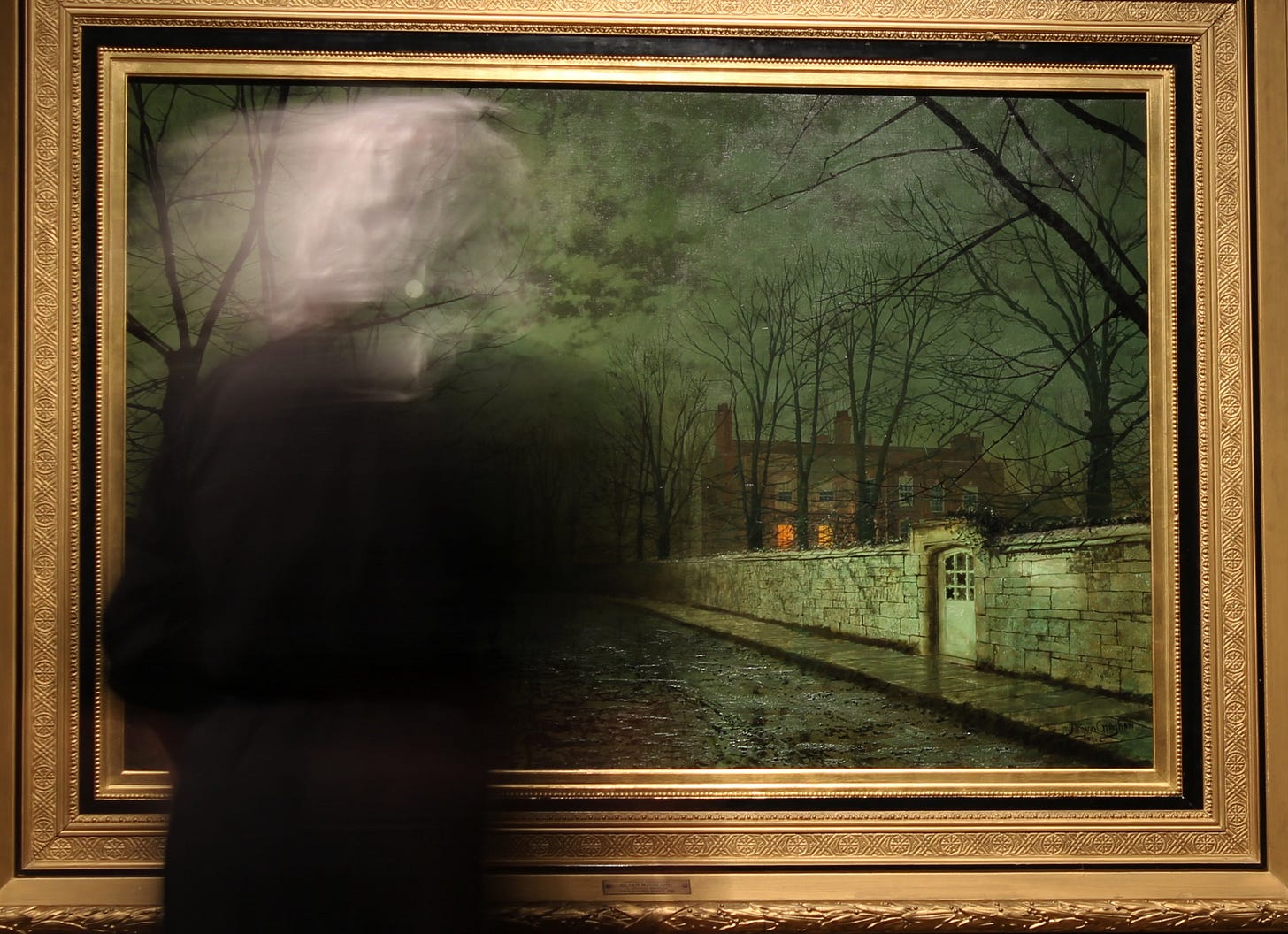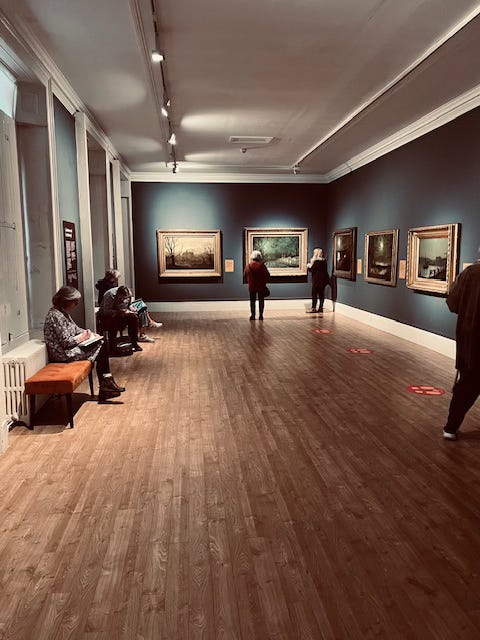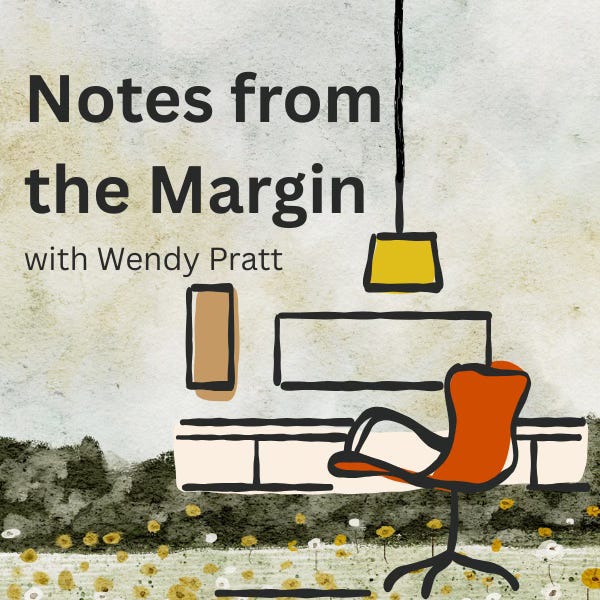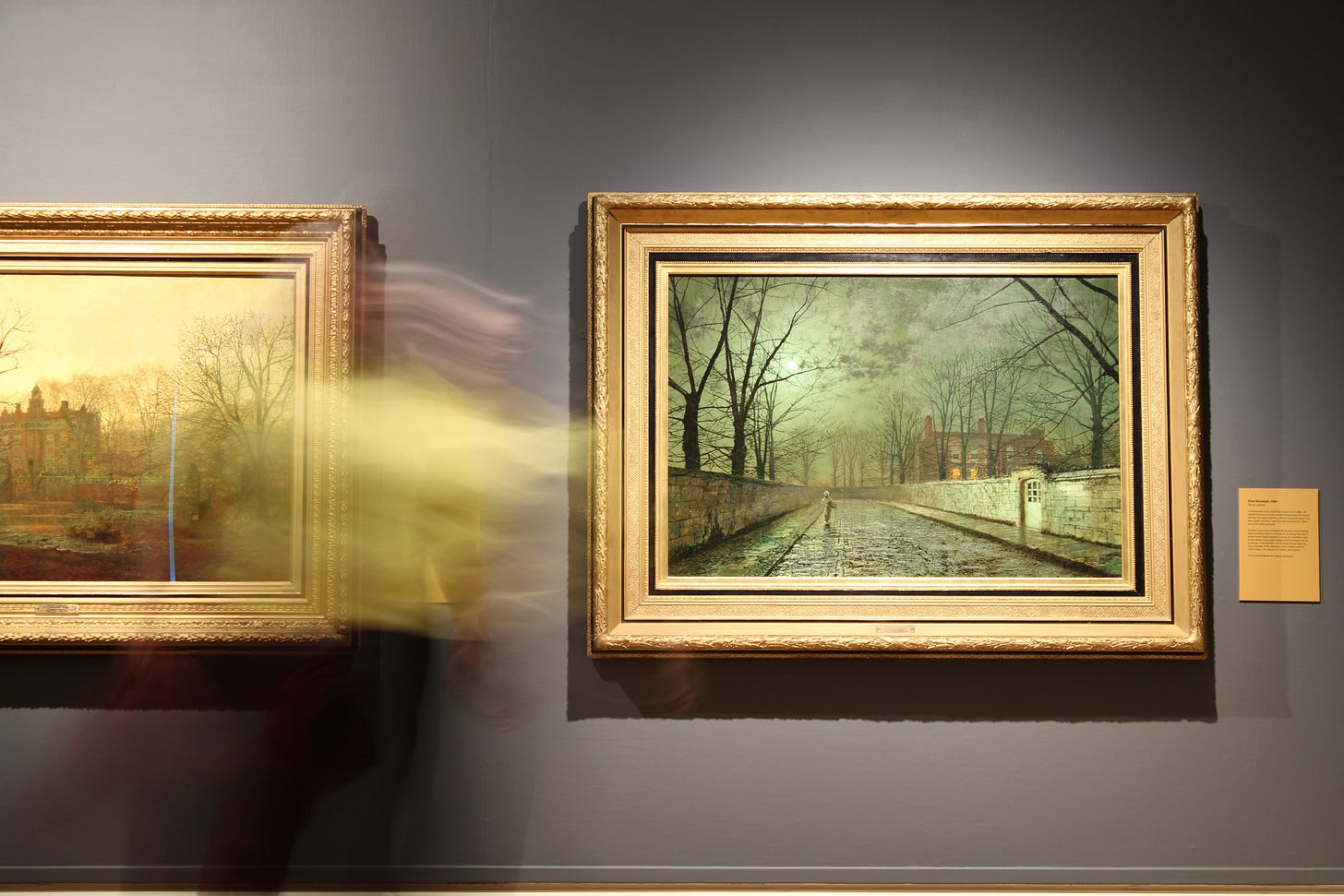Notes from My Writing Diary - Part Two
I need to get out of my office more. Facilitating workshops as part of my writing practice.
A strange week. The structure of the week falling down when my mum’s chemo was cancelled at the last minute. I would have liked to have been one of those people who saw this as an opportunity to have an extra day to write, but we are back to the incessant gnawing of not knowing what’s happening with my mum’s care, and I can’t write when my brain is fizzy with anxiety.
I haven’t done any creative writing of any kind since I sent the chunk of my novel to my agent to see what they think. Within two days of sending it I realised there were darlings still to kill. I could lose three thousand words of what I think might be writer-scaffolding: the story that I’m telling to myself before it becomes the story, and it would work better. But I’ve decided to wait and see what my agent’s initial reaction is before I scythe a massive chunk off it. I’m actually quite glad to have a week or so away from it.
I’ve used this week to consider what I want to do with substack, and to update it accordingly. I’ve used a lot of feedback from some in person events to shape how I think about what I present here. I’m not sure I mentioned in my last diary post that I was on a bit of a workshop running marathon, piling through a load of pre planned appearances and workshops facilitation which I’d set up before we found out that my mum’s cancer had spread and her care needs would be increased. So far I’m still managing the workload, around mum’s increased needs, possibly because there is an end in sight. A previous version of myself wanted to see if I could reduce my workload, if not take a complete break, in December, and I have left that whole month clear of workshops and mentoring, with just creative stuff and this substack to write.
I’m looking forward to embracing December as a writer, but the truth is that I’ve had a bit of an epiphany while I’ve been out of the cocoon of my writing room and actually speaking to real life people, and that epiphany is that this element of my work, alongside writing on substack, not only nourishes me as a person, but also as a writer. I’m so quick to grumble because so much of non writing work takes me away from actual writing. What I am becoming more aware of are the benefits of non-book-writing on my own writing practice, stuff that bleeds into my long term writing.
At the end of last week, on Friday, I ran the last of my John Atkinson Grimshaw based ekphrastic writing groups in Scarborough art gallery. I ran three, on Fridays in the mornings in October. I like running weekday writing workshops because it gives people who might not be brave enough to come to a packed evening workshop a chance to claim space too. Whilst I love the vibrancy of an evening workshop, I love just as much a quieter morning crowd. Morning crowds tend to have a greater percentage of older writers. But there is generally a good mix of life experiences. My Grimshaw groups were made up of new people each week. The experience of about two thirds of people in each group was one of returning to creativity after being away from it. These were people who had written a lot in their youth, but then had put writing aside while they cared for families or careers or marriages, or had had life experiences that derailed their plans and left them having to adapt their lives, and creativity had somehow slipped away from them. My lowest number of bookings for the three Grimshaw groups was five, my largest ten people. This is a good size group for this sort of workshop as it allows me to give individual attention. Workshops are often not about prompts and exercises, they are often about having knowledge of creative needs and nurturing the quiet, sometimes unspoken, desires of people to prioritise themselves and their writing. The people in the Grimshaw workshops were dipping their toes back into writing, and looking for a safe, pressure free space to do that. What a joy to provide that space.
My own practice is enhanced by this sort of facilitation because, apart from having my creative skills in building prompts and finding the right poems and extracts to challenge and encourage, I am working with a beginners-mind perspective. I’m being forced to imagine what it is like to come to a poem, or a piece of writing without background knowledge. It is encouraging me to deconstruct any work that I want the students to explore. It is looking with new eyes on old pieces that I might be hugely familiar with. And it is finding new perspectives from the students. There is always something that I haven’t noticed in a poem or a piece of prose that a student, a workshop attender, picks out. I then go back to my own work and look at it with that new perspective, that beginner’s eye and I see more of what is working, what is not working too.
There’s also an element of new experience. One of the most exciting parts of the process for the Grimshaw workshops was being in the gallery before it was open to the public. I loved standing in front of the shutter as it rolled up, the space that I was familiar with now dark and unfamiliar. New experiences are absolutely essential if you are going to write. Placing yourself in the way of new experiences is the way you grow your authenticity. The experience of having the time to soak up the curation of the space - not just the paintings, but the low light, the deep blue of the walls - was a rare privilege. We so often rush from one exhibition to the next in a museum environment. And what pleasure to write, and to examine how being in that space changed the way I wrote. I’m still thinking about it.
I rarely write to my own prompts in a workshop environment, but I did write in these workshops and now have three Grimshaw poems to tidy. Hmmmm, did I really open this diary post up by saying I hadn’t written anything creative at all this week? This is what I mean, it’s so easy to dismiss writing that is done without purpose of publication, or writing that is done because it is part of a weekly essay or blog post, without acknowledging the value of that practice.
I had the opportunity to talk to the Scarborough writer’s circle last week too, in the evening, about my memoir, The Ghost Lake and about my writing practice. This group was completely different to the morning workshops that I was running. Though I’d brought along a raft of prompts and exercises for them to work on, we actually barely did any writing at all, it was mainly me reading from the book and talking about how I wrote the book. I’m still finding myself surprised that people want to hear from me as a writer, not just as a workshop facilitator. I’m still trying to switch round the value setting in my own brain that says that the thing that I find interesting about other writers and their work and their process, other people find interesting about my work and my process. The people in the writers circle were people who were actively working at their own writing careers; they were working at establishing themselves as writers, working towards getting published and interested in finding ways to hone craft. They asked some fantastic questions. One of the ones I’m still thinking about was about gathering thoughts. The Ghost Lake is all about taking small ‘pilgrimages’ around one small, local area in order to know it, and myself, better. I was asked if I took a recording device with me to capture the journey. The answer is no, but it made me think, what do I do? I take photos with my phone, and a little instax polaroid camera, and sometimes I make notes on my phone, but mostly after any of the walks that I did for The Ghost Lake, I rushed home to my little desk in my junky little writing room and I wrote about what I had seen, and what I’d felt. This is how all the chapters in the book began. I carried what I called ‘pilgrim badges’ home with me - flint, rocks, fossils - to sit on my desk as a physical, sensory memory. I told the person who had asked the question that I thought I just had a really strong internal narrative voice, I could rely on that voice to describe to me what I had seen. And I realised in that moment that that voice had been cultivated, grown from keeping diaries and journals since I was seven or eight, and this - the blog, the substack.
The diary is not meant to be seen by other eyes, so is a place for splurging, refining, recording, without any sort of pressure at all. An absolute necessity if you want to find your own voice and improve without anyone seeing how bad your writing can be. And then there’s the blog, now a substack, where you write with a reader on the other end. What does that do for your practice? It allows you to feel the pressure of scrutiny, but fairly safely. It allows you to hone and edit with a reader in mind - will they be bored by this long passage, will they follow the connection I make? How can I make this better for them, while still holding onto my own needs as a writer to build out an idea that I have had, to be creative and artistic with my work.
It made me think about how I use substack as a writer, what my intentions are and what I want to get out of it. I have spent this week journalling on what I want I want to do with my substack, what benefits me and what I can offer others. My research involved asking myself questions about my own energy levels, and honest appraisals about the sort of writing I find enjoyable compared to what I think people want to read. And here I am. I realised I wanted my substack to be a version of what I had always done, to run home from my life journey and explore the connections around what it means to be alive, what that means to me, as a person and as a writer. Here’s my new About page: About.
And here’s what I offer as a substack.
What I Offer
For free subscribers
At least two free posts a month, notes delivered directly into your inbox.
Occasional Dear Writer advice column posts.
For Paid Subscribers
Seasonal Zoom Writing Workshops.
Monthly Zoom write Along Groups.
Occasional Author Interviews.
Paywalled Diary Posts.
Writing Prompts.
Access To the Archives.
Dear Writer advice column posts
Notes from the Margin goes out (usually) on a Thursday morning. I usually post once a week, but occasionally post more than once.
Here’s my new logo, do you like it?
I’m going to start an occasional Dear Writer advice column, so if you have a question about craft, practice, experience in any writing genre, you can drop me a line at wendyprattfreelancewriter@gmail.com
My takeaway for this week is: I need to get out of the office more. It’s good for me, it’s good for my practice.
If you were interested in the questions I asked myself to evaluate my substack:
How much actual time do I physically have to spend on writing substacks?
How much time away from writing am I willing to sacrifice for substack?
What sort of blog writing brings me the greatest pleasure?
How much of my income is generated by paid subscribers?
What would I think was value for money for a substack subscription?
What benefits to my own writing practice does substack give me.
What benefits to my writing career does substack bring me?
Am I writing for writers or am I writing for readers?
What questions do I most get asked at events, how can I answer these for a broader audience?
How can I help others whilst sustaining boundaries for my own writing, health, energy?
Quick Notes
Read about what’s coming up for paid subscribers here.
Buy my nature-landscape memoir The Ghost Lake Here.
Buy my latest poetry collection, Blackbird Singing at DuskHere.
Book a place on my upcoming Verve Poetry Workshop here.
Come see me at Whitby Lit. Fest hereThanks for joining me
Until next time
x






I loved this, Wendy. Thank you. I’m going to be thinking about the future of my own substack soon and your questions will be so helpful.
Thank you Wendy there is a lot to look forward to. Will your Verve poetry be recorded please? 🙏